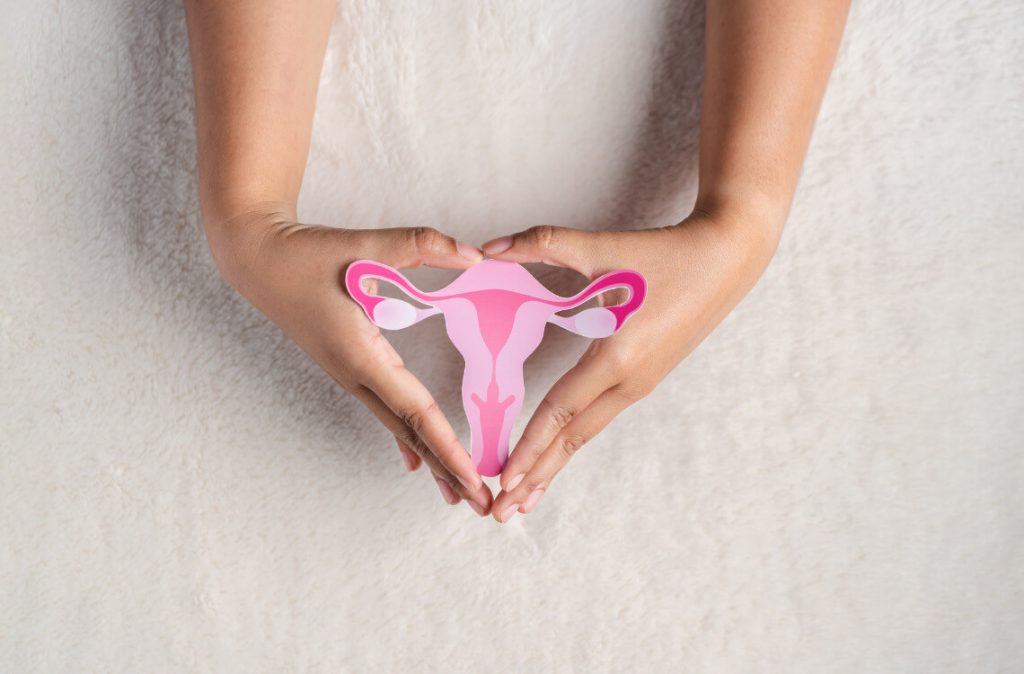Menopause naturally occurs as a biological process that ends menstrual cycles.
Clinically, doctors diagnose it after a woman has missed her menstrual period for 12 consecutive months.
This usually happens in the 40s or early 50s. As a result, women commonly experience various discomforts.
These discomforts include hot flashes, sleep disturbances, and emotional changes, among other physical symptoms.
Consequently, many women seek natural remedies, such as herbs and dietary supplements. In this blog post, we discuss ten popular herbs and supplements for menopause.
These have potentially helped many women mitigate menopause symptoms with greater ease.
Disclaimer: Always consult with your healthcare provider before integrating these into your regimen. While these herbs and supplements have been popularly used, the scientific evidence backing their efficacy is not strong.
What is Menopause?
Menopause is a natural and inevitable phase in a woman’s life, marking the end of her menstrual cycles and fertility.
It’s characterized as the time when a woman hasn’t experienced a menstrual period for 12 consecutive months, typically occurring between her 40s and early 50s.
This biological event ushers a woman into a new chapter of life and is often accompanied by a myriad of physical and emotional changes.
Hormonal fluctuations during this period can result in various symptoms, including hot flashes, sleep disturbances, mood swings, and weight gain, to name a few.
Although menopause might seem daunting for some, it’s important to remember it’s not a medical condition but a natural part of the ageing process.
Various strategies can help make this transition smoother and more comfortable, including healthy lifestyle practices, stress management, and, when necessary, the judicious use of herbs and supplements.
As each woman’s experience of menopause is unique, it’s crucial to consult with a healthcare professional for personalized guidance and support.
By embracing menopause as a milestone and with the appropriate resources and knowledge, women can confidently navigate this transition and enjoy a vibrant, healthy life beyond.
Here are some of the best menopause supplements.
1. Black Cohosh
Black cohosh is a plant native to Eastern North America. Historically, Native American women have utilized it for menopausal symptoms.
While some studies suggest that black cohosh helps reduce mood disturbances and hot flashes, stronger scientific evidence is necessary.
2. Red Clover
Red clover, rich in isoflavones or phytoestrogens, is traditionally used for hot flashes because of its estrogen-like effects.
However, clinical trials have produced mixed results regarding its impact on menopause symptoms.
3. Dong Quai
Traditional Chinese Medicine reveres Dong Quai as ‘female ginseng.’
Although it is often suggested for menopause symptoms due to its potential support of blood circulation, scientific evidence of its efficacy is not definitive.
4. Evening Primrose Oil
Manufacturers extract evening primrose oil from its plant’s seeds. It has been circled in reports as it helps with discomforting hot flashes.
Its gamma-linolenic acid content suggests a role in maintaining hormonal balance.
5. Maca
Cultivated in Peru’s Andes mountains, the Maca plant has been long used for enhancing sex drive and fertility.
Initial research notes that it may help reduce menopausal symptoms, including hot flashes and sleep disruptions.
6. Soy
Soybeans are high in isoflavones, acting as phytoestrogens that can mimic the effect of the female hormone estrogen.
Consequently, many recommend soy for managing menopause symptoms.
Nevertheless, the results remain provisional—while some studies suggest that soy may help reduce menopause symptoms, others found little effect.
7. Flax Seeds
Dense in nutrients, flax seeds contain estrogen-like compounds posing potential relief from hot flashes.
Plus, their dietary fibre is excellent for menopausal women aiming for weight management.
8. Ginseng
Ginseng is primarily known for its adaptogenic properties.
But it also holds the potential to combat menopausal symptoms like sleep disturbances and mood swings. Still, solid scientific evidence confirming this is yet to be established.
9. Valerian
Valerian has historical application due to its medicinal qualities.
Specifically for menopause, experts often suggest it for sleep complications. But remember, clinical trials have inconsistent findings.
10. St. John’s Wort
St. John’s Wort is a recognized mood regulator.
It actively reduces menopausal mood swings and sleep disturbances.
Some clinical studies support this claim, but scientists require more robust research for validation.
Conclusion: Menopause Supplements
Menopause is a profound milestone, encapsulating a physiological and psychological transition.
Therefore, these herbs and supplements may help to ease some of the common symptoms.
However, researchers have not universally established its general effectiveness and side effects.
You must always talk to your healthcare provider before starting any new supplementation.
They can guide you based on your unique health profile.
Importantly, menopause isn’t a disease – but a natural phase in a woman’s life cycle.
Maintaining a balanced diet, ensuring regular exercise, managing stress, and judicious use of dietary menopause supplements and herbs certainly helps.
You can indeed navigate this phase smoothly.
Here’s to a fruitful journey through menopause – and life beyond!
Disclaimer: The information provided in this article is for informational purposes only and should not be considered as medical advice from Motherhood. For any health-related concerns, it is advisable to consult with a qualified healthcare professional or medical practitioner.
For more insightful stories and fun recipes, stay tuned to Motherhood Story!
